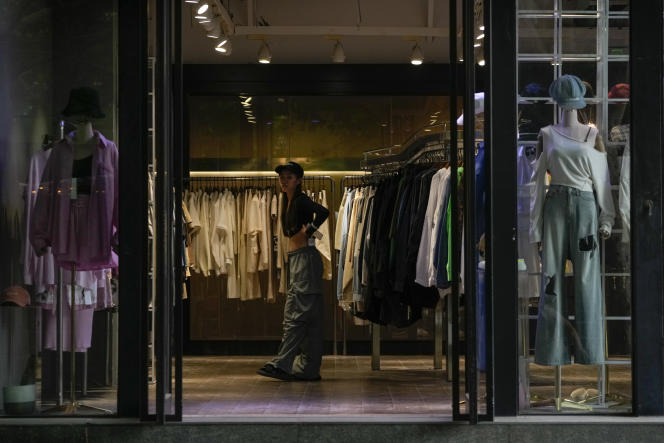Is the Chinese economy on the brink of collapse? In two weeks, bad news has accumulated for the world’s second largest economy: a 14.5% drop in exports in July, payment defaults and bankruptcy of the main real estate developers, the country’s entry into deflationary territory…
A sign that the situation is serious, the Chinese authorities are doing everything to hide the difficulties: economists are asked to speak only of good news, and the National Bureau of Statistics has stopped publishing the figures for youth unemployment, which had just beaten a record in June, reaching 21.3%. On the ground in China, it is difficult to find bosses who are optimistic about the state of their sector. With little confidence in the future, households save more than they spend.
If the mood is gloomy, experts agree that the bursting of a Lehman Brothers-style asset bubble in 2008 is unlikely. The risk is rather that the current crisis will drag on, opening a long period of stagnation like that experienced by Japan after 1991.
“New Normal”
Because the cyclical slowdown adds to a structural trend: the end of an era of strong growth, and the entry into a “new normal” : that of a less dynamic China, whose population is declining, but whose development would be based on growth ” High quality “according to the official jargon, that is to say based on consumption and high technologies, and less on investments and exports.
But negotiating this landing, after thirty years of frantic development, is particularly delicate. It is even the greatest economic challenge of Xi Jinping’s reign. Because the current slowdown reveals the imbalances accumulated during the previous period.
The main concern is the risk of contagion from real estate to finance. After the default of Country Garden, another piece of information created panic among investors: a subsidiary of the Zhongzhi investment fund had also defaulted on bonds, revealed its creditors on August 11. The company is one of the main players in “shadow finance” in China, less controlled than banks open to the general public, but which plays an important role in financing the private sector.
The exposure of these institutions to the real estate sector raises fears that they will be the next to dive, while more than eighty promoters have defaulted over the past two years. In 2022, the difficulties of local banks in Henan (Center), themselves close to real estate developers, had prompted thousands of savers to demonstrate to recover their savings.
You have 59.26% of this article left to read. The following is for subscribers only.
